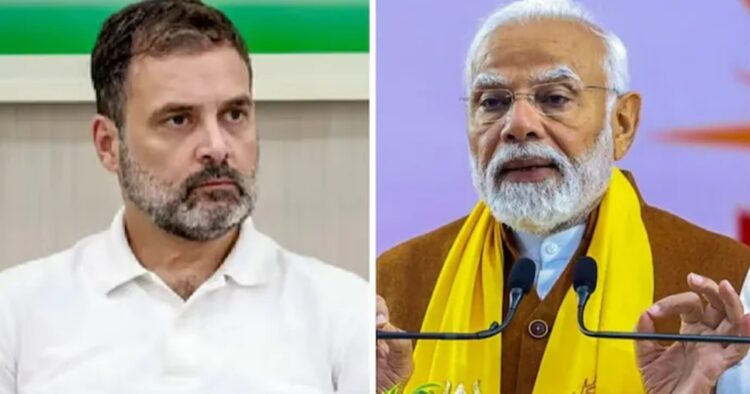During an election rally in Madhya Pradesh’s Hoshangabad, Prime Minister Narendra Modi took a swipe at Congress leader Rahul Gandhi for his recent pledge to eliminate poverty with a single action, as outlined in the Congress party’s manifesto for the upcoming Lok Sabha elections. Modi referred to Rahul Gandhi as “Congress ke shehzade” (prince of the Congress) and questioned the feasibility of Gandhi’s claim, suggesting that even the Congress leaders themselves seem perplexed by their own manifesto.
Modi ridiculed Gandhi’s promise of eradicating poverty in one stroke, labeling him as a “shahi jaadugar” (royal magician) and expressing amusement at the sudden emergence of this seemingly miraculous solution after years of absence from the political discourse. The Prime Minister emphasized the incredulity surrounding Gandhi’s declaration and questioned the credibility of such a promise, prompting laughter and skepticism among the audience.
Further criticizing the Congress party, Modi highlighted the irony of their past governance, suggesting that they previously operated the government with a “remote control” and are now proposing a “jhatke wala mantra” (quick spell) for poverty eradication. He portrayed Gandhi’s promise as an insult to the poor, questioning the logic and sincerity behind such extravagant claims, especially considering the party’s track record.
Earlier in the week, Rahul Gandhi had made headlines with his electoral promise to eliminate poverty with a single stroke, along with other key pledges outlined in the Congress party’s manifesto. These promises include transferring ₹one lakh to the account of one woman from every poor household in the country, filling vacant government positions, ensuring a national minimum wage, and implementing recommendations from the Swaminathan Commission regarding MSPs.
However, Modi’s criticism underscores the contentious nature of election pledges and the skepticism surrounding grand promises made during political campaigns. As the election season progresses, such exchanges between political leaders are likely to intensify, shaping public discourse and influencing voter perceptions in the lead-up to the polls.

















Comments